Georgia under the pressure of foreign strategies Article by Vladimir Tskhvediani
Protests organised by the pro-Western opposition in Georgia aimed at unconstitutionally changing the country’s government and dragging the nation into geopolitical adventures harmful to Georgian statehood and the entire South Caucasus — such as what some EU ruling circles desire, the opening of a “second front” in the war against Russia. In fact, the European Union is conducting its own “special operation” in Georgia with this very purpose.
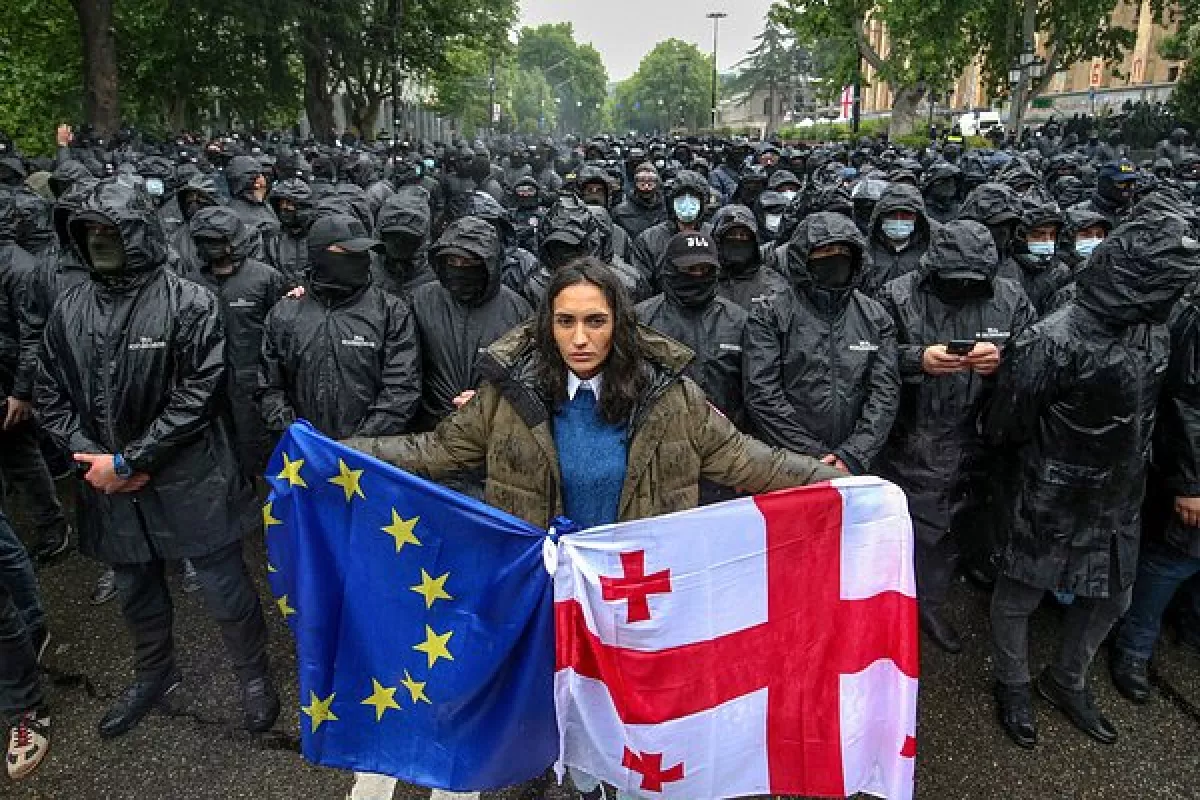
The authorities have begun taking measures to counter this “special operation.” This was essentially stated by Georgian Prime Minister Irakli Kobakhidze, who also explained to journalists why the ruling party, Georgian Dream, filed a lawsuit with the Constitutional Court seeking to ban several opposition parties.
“The sabotage of 2020 and 2024, along with five attempted revolutions we have faced over the past four years, have all been part of a foreign-led special operation. The United National Movement, Ahali, Lelo, and Gakharia have all played equal roles in this foreign conspiracy,” stated Irakli Kobakhidze.
According to the prime minister, banning certain opposition parties is necessary to protect democracy, as these political forces act against Georgian statehood and do not recognise the legitimate authorities.
“This is an important matter for our country. We see that the political system goes in a closed circle. There exists a criminal group, foreign agents, that give no peace to the country. These are anti-democratic, unconstitutional forces that always try to overthrow the constitutional order of the state,” Kobakhidze noted.
“In such conditions, of course, the democratic system must protect itself,” the prime minister concluded.
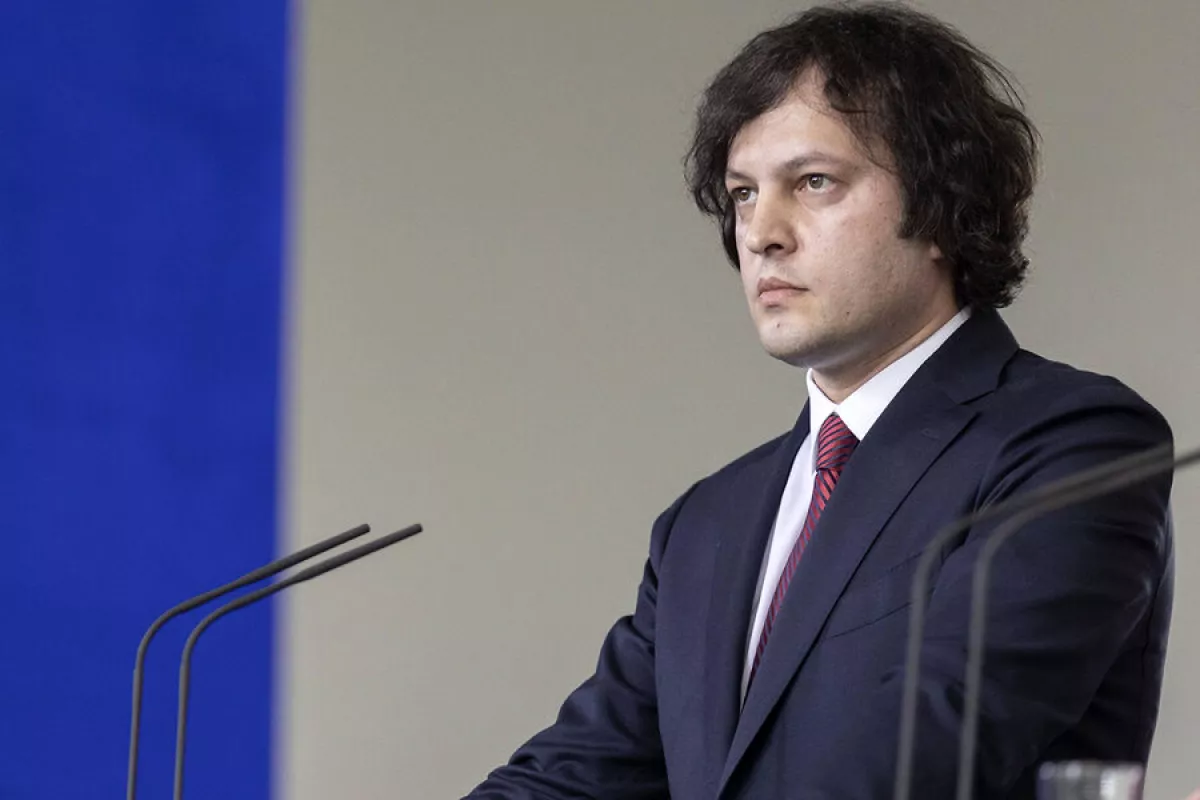
Kobakhidze deliberately emphasised the year 2020. At that time, after losing the parliamentary elections, opposition parties provoked a political crisis by demanding early elections and involving the European Union in pressuring the Georgian government. The EU forced Georgian Dream to sign an agreement with the opposition, presented by European Council President Charles Michel. The agreement allowed for the possibility of early parliamentary elections in Georgia in 2022 if the ruling party received less than 43% of the vote in the 2021 municipal elections.
However, in October 2021, Georgian Dream secured about 47% of the votes and won elections in all municipalities except for the small town of Tsalenjikha in western Georgia. The opposition did not recognise the results, citing “fraud.” With financial and organisational support from abroad, it began preparing new attempts at “revolutions,” even though its popularity within the country was steadily declining.
“Since 2020, the state has been the target of a special operation carried out by foreign forces. It began when, under the ‘Charles Michel Agreement,’ attempts were made to limit sovereignty. At that time, there were also efforts to pass off falsehoods as truth — I am referring to parallel vote counts. Since 2022, when the war started, foreign agents have been operating in our country with the aim of overthrowing the government. There have been several attempts at revolution,” stated David Matikashvili, Chairman of the Parliamentary Procedural Committee.
The experience of the “Charles Michel Agreement” showed that when the Georgian authorities yield to pressure from the EU, it brings neither stability nor peace. The opposition, however, never recognises its defeat, acting outside the law and against Georgia’s interests to satisfy its foreign “masters.”
Today, the Georgian authorities hold an indisputable mandate, earned in parliamentary and municipal elections, and are able to more decisively defend the country’s sovereignty. Alongside the process initiated in the Constitutional Court to ban radical opposition parties, the Georgian Prosecutor’s Office has filed charges against eight opposition leaders.
In particular, a criminal case has been opened against former President Mikheil Saakashvili, as well as Giorgi Vashadze, Nika Gvaramia, Nika Melia, Zurab Japaridze, Elene Khoshtaria, Mamuka Khazaradze, and Badri Japaridze.
Prosecutor General Giorgi Gvarakidze stated that the investigation, conducted jointly by the Prosecutor’s Office, the State Security Service, and the Ministry of Internal Affairs, concerns crimes committed against the state. Among the alleged offences are sabotage, assisting a foreign state in hostile activities, financing actions aimed against the constitutional order and national security, and calls for the violent overthrow of the government.
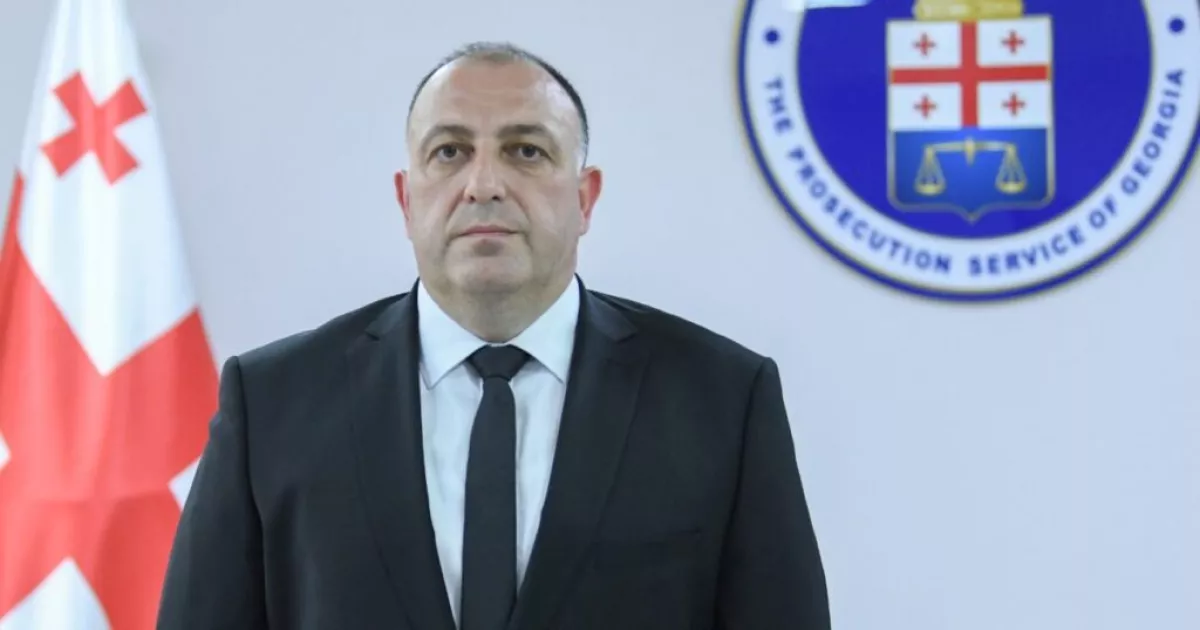
According to Gvarakidze, after the start of the war in Ukraine, the Georgian authorities refused to impose sanctions on Russia in order to avoid conflict. In response, some opposition leaders — acting to the detriment of national interests — passed information to foreign states about imports of petroleum products, as well as data (including fabricated material) about Georgia’s military sphere.
He also specified that in October 2024, after the opposition’s defeat in the parliamentary elections, Japaridze, Vashadze, Khoshtaria, Gvaramia, Melia and Khazaradze publicly called for revolution, the overthrow of the authorities, the collapse of institutions, picketing of state bodies and clashes with law‑enforcement officers.
“In order to mobilise supporters, former President Mikheil Saakashvili, using his personal social‑media page and video appeals, called for illegal and violent actions which, he said, must be fought and resisted aggressively,” the prosecutor said.
Ultimately, Saakashvili has been charged under Article 317 of the Georgian Criminal Code — calls for the violent alteration of the constitutional order or overthrow of the government. Japaridze and Vashadze are charged with sabotage and assisting foreign states in hostile activities; Khoshtaria — with sabotage and providing material resources for them; and Gvaramia, Melia, and Khazaradze — with sabotage.
As evidence, the Imedi TV channel published a recording of a conversation between Elene Khoshtaria and Zurab Japaridze regarding instructions received from foreigners, including the transmission of military-related information.
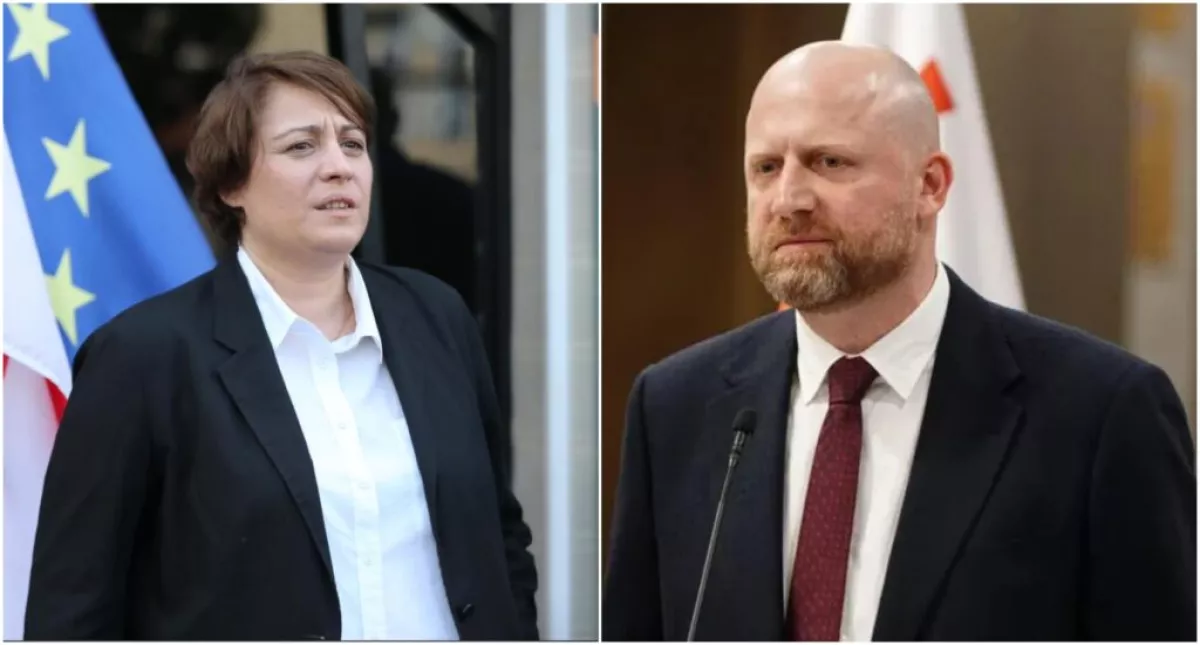
“They said we won’t let Bidzina [Ivanishvili] get away with this. They immediately told us the topics they were interested in - for example, information about Russian businesses opening here, oil purchases, military matters. They wrote down a specific list of questions and told us to provide ongoing information on these topics. We compiled about a 100-page document - some of it we sent for verification, some as confirmed documents, and so on,” Khoshtaria is heard saying in the recording.
In the recording, Zurab Japaridze also mentioned Iranian drones: “What they told me they were interested in was the issue of Iranian drones. These drones have become a serious problem in Ukraine, and the information that they might have entered Russia through Georgian airspace was important to them - they mentioned it themselves. They said that if such a thing were confirmed, it could serve as grounds for reaching a consensus within the EU to impose sanctions.”
Thus, having failed in their attempts to stage a “revolution,” opposition leaders are doing everything possible to “betray” their own country and provoke sanctions against it — including at the behest of foreign sponsors. They fabricate information, for example, claims about alleged deliveries of Iranian drones to Russia through Georgian territory.
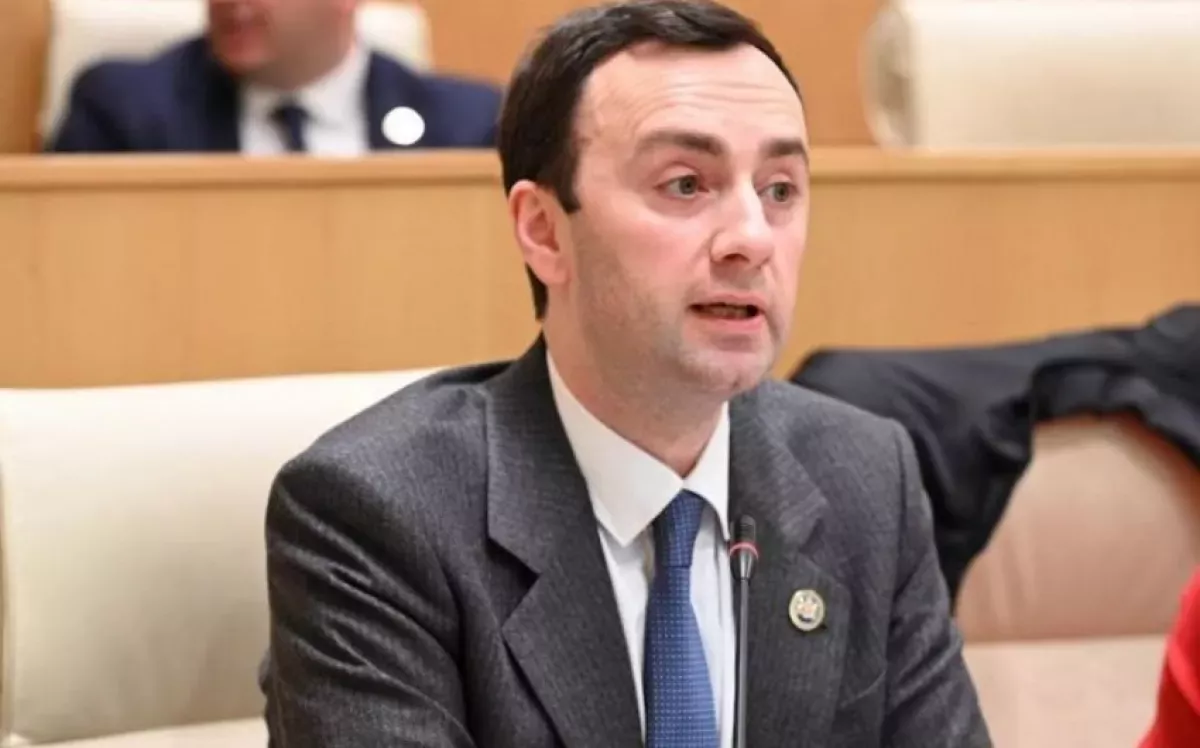
According to Levan Makhashvili, Chairman of the Parliamentary Committee on Euro‑Integration, the published recordings prove that opposition leaders are participating in a well‑organised and funded special operation.
“The Prosecutor’s Office is providing a legal assessment of processes that the public has observed live over the past year. If the information in the recordings is accurate, it is further confirmation of these individuals’ activities, which contradict Georgia’s national interests,” Makhashvili stated.
As a state, Georgia is compelled to defend itself against external special operations that threaten its security and constitutional order. To protect statehood and democracy, the authorities are taking measures to neutralise the illegal activities of the radical opposition acting in the interests of foreign powers. These measures include the potential banning of parties that threaten national security and holding their leaders criminally accountable.
By Vladimir Tskhvediani, Georgia, exclusively for Caliber.Az








